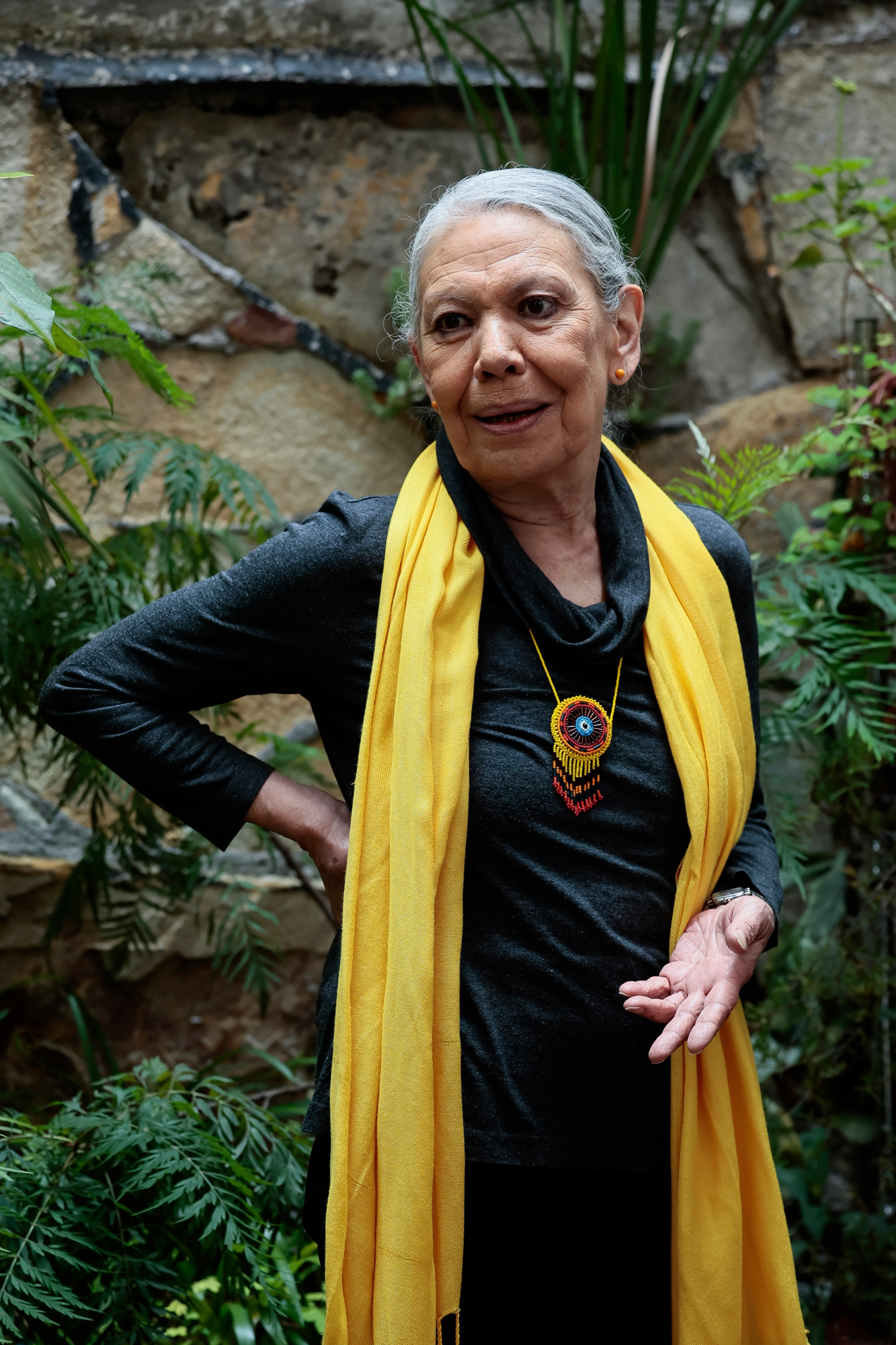'They Shall Not Move Us,' a portrait of the 1968 massacre that revives the injustices of modern-day Mexico.

The Tlatelolco massacre in 1968, the disappearance of the 43 students from Ayotzinapa (Mexico) in 2014 and the 130,000 missing people sought by their mothers in Mexico share the same root: the “injustice” brewing for more than half a century in the country, a truth present in 'They Will Not Move Us', the Mexican film that revives the “desire for justice,” says its protagonist, Luisa Huertas.
On October 2, 1968, Huertas was 17 years old, but he vividly remembers that date, which marked “a milestone in the history of Mexico,” because, he tells EFE, “how can we forget the moment when the Army entered the schools with fixed bayonets, tanks, dogs, and soldiers?”, causing the deaths of more than 300 students.
“I was at the National School of Theatrical Arts of the INBA (National Institute of Fine Arts), studying for a degree, when I was very young, and they intervened,” the performer says about the day the Mexican Army and its paramilitary group, the Olimpia Battalion, repressed a peaceful demonstration in the Plaza de las Tres Culturas in Tlatelolco during the presidency of Gustavo Díaz Ordaz (1964-1970).
The 74-year-old actress explains that that period, led by the then-hegemonic Institutional Revolutionary Party (PRI), marked “a milestone in the country’s history” because it became clear that “repression alone could not be used to silence discontent.” Socorro Seeks the Truth Half a century after the massacre, Huertas received the script for 'No nos moverán' (They Will Not Move Us) (2024), the debut film by Mexican Pierre Saint-Martin, in which she plays Socorro, a lawyer “disillusioned” with the Mexican justice system who has spent 56 years searching for the person who killed her brother, Jorge, in 1968.

Mexican actress Luisa Huertas, the film's lead actress. Photo: EFE
“We didn't want to reproduce the movement and its immediate consequences, but rather what happened 50 years later to the people who were collateral victims (...) They are families who lost people and who have that desire for justice of not having really found out who he was, because Díaz Ordaz is only the visible face ,” he argues.
For the actress, this film reflects current events, since Socorro's "desire for justice" is also present in the families of the 43 students who disappeared in Iguala, as well as in the "tireless" search by the searching mothers.
“Their perseverance and strength continue to rub in our faces the lack of efficiency or the lies that have been told” by eleven different administrations (1964-2025), highlights the renowned artist, who was distinguished as Living Cultural Heritage in 2019. She also highlights that this black and white feature film - inspired by the director's mother and his uncle, who died in 1968 - fuels “the hope that the fight will continue” and that “all these arbitrary acts, murders, corruption of justice, lies and abuse will not be forgotten.”
Moving Youth Huertas acknowledges that “youth is no longer as politicized”; however, he adds, “we have confirmed at screenings” of the film , nominated for the 2025 Ariel Awards and winner of Best Mexican Film at the Guadalajara International Film Festival (FICG), that it “moves” young people under 18.
“That's what all of us who make theater or film aspire to: to impact the audience, to have something happen to them with what they've just learned,” he asserts about the film, which premiered at the last Cinélatino Festival in Toulouse, France. With more than 50 years of professional experience, Huertas envisions, without a hint of vanity, that his legacy is “preserving the human voice” in the classrooms of the Center for Studies on the Use of the Voice (Ceuvoz), an institution he founded in 2006.
"We want to preserve, and even more so now in the age of artificial intelligence, the human voice as a true privilege: this is our sound, each species has its own. Our aspiration in this school is for the word to be spoken with a 'c': to speak, express, protest, fight," he concludes.
eltiempo

%3Aformat(png)%3Aquality(99)%3Awatermark(f.elconfidencial.com%2Ffile%2Fbae%2Feea%2Ffde%2Fbaeeeafde1b3229287b0c008f7602058.png%2C0%2C275%2C1)%2Ff.elconfidencial.com%2Foriginal%2F60e%2Ff02%2F980%2F60ef029801a55fc5a5403fac3c79d153.png&w=1280&q=100)


%3Aformat(jpg)%3Aquality(99)%3Awatermark(f.elconfidencial.com%2Ffile%2Fbae%2Feea%2Ffde%2Fbaeeeafde1b3229287b0c008f7602058.png%2C0%2C275%2C1)%2Ff.elconfidencial.com%2Foriginal%2Fbf5%2Fa68%2F94c%2Fbf5a6894c718069b2cf6661d5221af9e.jpg&w=1280&q=100)
%3Aformat(jpg)%3Aquality(99)%3Awatermark(f.elconfidencial.com%2Ffile%2Fbae%2Feea%2Ffde%2Fbaeeeafde1b3229287b0c008f7602058.png%2C0%2C275%2C1)%2Ff.elconfidencial.com%2Foriginal%2Fb66%2Fa43%2Fa27%2Fb66a43a273e361121ee09be4485fa559.jpg&w=1280&q=100)